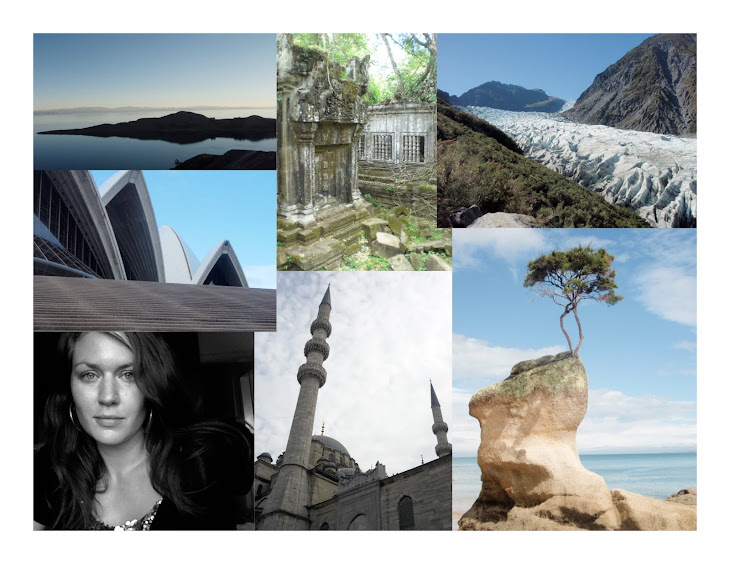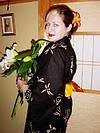drinking Italian coffee on the porch,
looking out over the houses in the valley,
gazing across the bosphorus at the beginning of Asia,
the sounds of my neighbors making breakfast and scolding one another,
the caw of seagulls that ride above the valley on swells of air that rise
from the houses and streets below,
I thank god it’s Saturday morning and it’s all mine.
Three months in to life in Istanbul I’ve found a new home.
Two weeks ago, my roommate and I, with the help of my friend Dave, piled all our earthly possessions into two taxis and “moved” from Taksim – the gritty, fast-paced commercial hub of Istanbul – to an area about five minutes away with quiet streets, trees, old ladies keeping watch out the window, fruits and veg sellers lounging by their stalls drinking tea, children yelling and screaming and delegating in a playground, old men walking their dogs up to the bakery to buy their daily bread and the call to worship – five times a day starting around 4:30 a.m. – from the loudspeaker atop the little neighborhood mosque.
After a good deal of scrubbing, sweeping, mopping and organizing, we placed all our things in their places, stocked the kitchen cupboards and stood out on the balcony to enjoy our new view on life.
From the balcony of the new apartment you can see all the way down the valley over an area called Beshiktash (phonetic spelling) to the bosphorus and to Asia on the other side of the water (we live on the European side of Istanbul).
Istanbul, a city of 16 million people (not counting the 1 million or so people smuggled through on their sad journey from places east to places west), is a daily inspiration and challenge, and probably the most populated city I’ve been in thus far. With more inhabitants than Tokyo at 12 million, London at 7 million, New York at 8 million and Bankok at 9 million, people are living one atop the other in their daily struggle to work, live and play. This is not to mention the sub-population of wandering cats and dogs that rummage through the scraps left for them by Turks on the sidewalks outside their buildings.
But here, our view on the chaos seems small and safe. We’ve named the fluffy little white dog that scratches around in the garden 4 stories below us “snowflake,” the dog who lives on the porch a few buildings over “sweetpea,” and the cat who sleeps on the car one street down “pumpkin.”
As it does, work continues along as well. I am lucky to say that I like all of my students (even the naughty ones – or perhaps especially the naughty ones as they remind me of myself at 16). Everything that I love about the personality of Turks – the chatting, the joyful urge to dance, the impulsive passion of opinions and personality – does make it somewhat difficult to control my 15 and 16 year-olds, but such is my current challenge, and although it’s tiring, it will also be rewarding (if it kills me).
Most recently, the excitement at school quickened on October 29th with the celebration of Ataturk day. This holiday commemorates the founding of the secular republic by Mutafa Kemal Ataturk in 1923. My students attended assemblies commemorating the event which rivaled any holiday concert or 4th of July celebration at home.
Our first evening in the new apartment, we stood out on our balcony and watched a firework show explode over the bosphorus to celebrate the founding of Turkey’s Cumhurriyet (the secular Republic).
Just before the fireworks show started, the small mosque in the avenue below our apartment played the Adhan (call to worship) and perhaps it was my imagination, but the undulating wail of “Allllllllaaaaaaahhhhhhh, Allllllllaaaaaahhhhhh, Allllllllaaaaaahhhhh!”, seemed to be louder and more passionate than usual.
Although life is marked by such highlights and intrigues, everyday life continues to impress as well. On my way home from work in the evenings, I join the masses in a jumbled, congested mix of subways, buses, taxis and shuttle buses, which one must join in order to get anywhere. Things to watch out for in the jumble include pushy old women in shawls and headscarves who hip-bump their way to the front and pervy men stealing furtive glances at the yabanci (foreigner).
It is a lovely, mindless activity to join the throngs on my way home from work. Even standing on a bus for 30 minutes as we crawl along 3 miles is relaxing as no one asks anything of me and I am free to think my thoughts.
Once we reach our new neighborhood, we speed walk over the cobble-stoned streets, passing simit (sesame-seed bagel) and medea (stuffed mussel) sellers, children and men selling packets of tissues, super glue and socks, the fish market where fishermen bring the daily catch, calling out to would-be customers “buyurun!” (Come over here and buy something! You’re welcome here!).
We pass kebab (meat sandwich), pastry and pudding shops, fruit and veggie markets with displays of autumn fruits - pomegranates, quince, apples, melons, leeks, cabbages, tomatoes, pears, then tailors, shoe cobblers and small family stores selling toilet tissue, electrical outlets and cheaply made shoes.
Often these days, as it’s autumn, someone has their street cart out selling roasted chestnuts or corn.
On weekends and holidays, I continue exploring Istanbul with friends. Each time I go, I see something new. As we wander up and down the steep cobble-stoned streets and neighborhoods, all eventually leading down to the waters of the bosphorus, I am happy that I’ve chosen to spend part of my life in this crazy city.
My teacher is a hilarious Turk of about 35, tall and razor thin with a long, opinionated nose, slim, humorous face, a huge head of long frizzy black hair that he pushes out of his face with repeated “umphs”, tight black jeans and hand-rolled cigarettes. What a character. More on this one later, I’m sure.
And so, nearly 11 months into my journey around the world, I find myself at home, for now, in Istanbul. The journey has been the best $15,000 I’ve ever spent. It has been at once difficult, inspiring and life-changing. Indeed, if it was a different trajectory I was looking for, I have succeeded. And yet, of course, the more I learn about life, the more I realize how little I understand.
I’ll sign off with one of my favorite quotes from Robyn Davidson, who crossed the Australian outback, from her book Tracks:
“I had been vaguely bored with my life and it's repetitions -the half-finished, half-hearted attempts at different jobs and various studies; had been sick of carrying around the self-indulgent negativity which was so much the malaise of my generation, my sex and my class.
So I made a decision which carried with it things that I could not articulate at the time. I had made the choice instinctively, and only later had given it meaning. The trip had never been billed in my mind as an adventure in the sense of something to be proved. And it struck me then that the most difficult thing had been the decision to act, the rest had been mere tenacity - and the fears were paper tigers.
One really could do anything one had decided to do whether it were changing a job, moving to a new place, divorcing a husband or whatever, one really could act to change and control one's life; and the procedure, the process, was it's own reward.”

